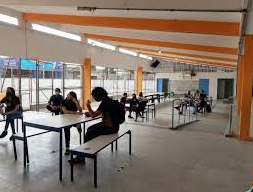Are Elite Schools Still the Ultimate Goal for Parents in Today’s Society?
In a world where young children are experiencing international exchanges even before many university students, one might assume that the obsession with prestigious schools would eventually fade. However, despite millennial parents being more aware of the holistic needs of their children, their fixation on elite schools remains strong.
Millennial parents often prioritise more than just academic success; they strive to provide their children with experiences that cater to their emotional and mental development. They are willing to invest significant time and money into extra-curricular activities that aim to build their child’s socio-emotional and intellectual capacities. Yet, many of these parents, despite their personal experience of the stressful education system, continue to fuel the demand for top-tier schools.
There is no universal set of criteria that defines an elite school, but these institutions are typically known for their competitiveness and reputation. Examples like Hwa Chong Institution, Raffles Institution, and Anglo-Chinese School are often top of mind. But what is it about these elite institutions that attracts so many parents, and will millennials ever accept that every school has its own merits?
The prestige of elite schools is often tied to the belief that they lead to better academic outcomes, though this isn’t always backed by evidence. For example, a 2016 report by the Singapore Children’s Society revealed that students in elite schools were perceived to hold a higher social status, and their parents were more confident about their children’s chances of pursuing higher education.
This societal view explains why many parents are eager to send their children to such institutions, even if it requires relocating or volunteering substantial time to improve their chances of admission.
However, there are parents who are challenging this trend. Take 41-year-old Chitra Pubalan, who chose to send her daughter to Woodlands Primary School, despite the allure of more prestigious options. For her, the proximity of the school and its focus on play-based learning made it the right choice, even though she would have had to travel long distances to send her child to a top-tier institution like Raffles Girls’ School (RGS).
For some parents, the desire to send their child to an elite school starts early. Jacklyn, a 35-year-old mother, recalls the pressure she felt when her son was just three years old. With various changes in the education system, such as Direct School Admission and subject-based banding, navigating the best educational opportunities has become increasingly complex. Despite the Ministry of Education (MOE) removing official school rankings, parents still rely on unofficial resources, like online forums, to identify the top schools.
The reality, however, is that changing labels or school classifications doesn’t solve the underlying issue. Even if the names of schools were altered, the competition to send children to perceived top-tier institutions would remain strong.
Yet, some parents have started to realise that good schools exist beyond the elite few. Katharine Ho, a 36-year-old mother, reflects on how the educational landscape has changed since her own childhood. While her generation was heavily focused on science and mathematics, today there is greater acceptance of the humanities. For her, a good school is one where her son doesn’t feel inferior if he doesn’t excel in traditional subjects like math and science.
The dynamics of parenting have also evolved. With over 70% of millennial couples working full-time, they are increasingly focused on finding schools that provide not just academic excellence, but also a caring environment for their children. This shift in priorities has led some parents to consider the quality of care and emotional support provided by schools over their academic standing.
Elin Chua, a mother of two, shares a similar perspective. Despite her children attending an elite school, her son’s journey was not without challenges. After his PSLE results did not open the doors to prestigious secondary schools, Elin chose to send him to Bukit Merah Secondary School. There, she found a school that placed a strong emphasis on nurturing its students. Elin firmly believes that the care her son received at this school far outweighed any academic prestige.
This shift in perspective is not without its challenges. Katharine, for instance, admits that even small concerns about her child’s development, such as not holding a pencil properly, make her anxious. It’s a reminder that as parents, the pressure to achieve academic excellence often seeps into every aspect of parenting, even at the early stages.
Katharine suggests that the key to alleviating this pressure may lie in rethinking how we measure success. Instead of focusing on overall grades, parents could focus on areas where their children excel. This aligns with the MOE’s recent efforts to introduce reforms aimed at subject-based banding, though it remains to be seen whether these changes will result in a lasting shift in attitudes.
Ultimately, the obsession with elite schools will persist until there is a significant change in how opportunities are distributed. Parents like Elin have already begun to realise that good opportunities exist in schools of all types, but convincing the wider population to adopt this mindset will take time.
For parents like Chitra, the constant cycle of comparing schools and striving for top-tier institutions has led to unnecessary stress. She believes it’s more important to focus on the individual needs of her children rather than comparing them to others.
In the end, the journey towards a more balanced view of education will require time and effort from both parents and the education system. While academic results will always matter, fostering an environment that values the individual child, beyond just their grades, is the ultimate goal.
As Elin wisely suggests, “Be a tiger, but in a different way. Focus on your child’s passions and purpose, rather than just academics.”








